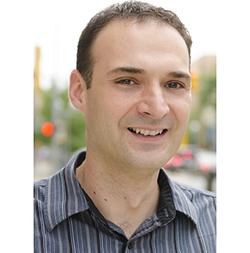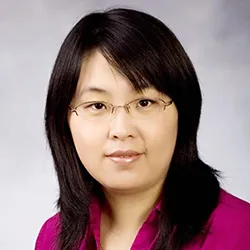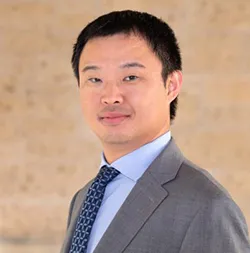
Registration cost is $150.00 for both days.
Registration closed on Friday, August 4, 2023.

About the T32 Summer Boot Camp
The University of Texas at Austin School of Nursing is excited to host a virtual 2-day precision health methodology boot camp designed to present innovative precision health research intervention methodology and strategies that incorporate individual information to construct precise health interventions in managing multiple chronic conditions (MCC).
T32 Precision Health Methodology Summer Boot Camp will bring together experts in artificial intelligence, machine learning, consumer digital health, big data science, and intelligent sensors and wearables, featuring our keynote speaker Stephanie Goldstein, PhD, Assistant Professor (Research) of Psychiatry and Human Behavior at the Brown Alpert Medical School and Research Scientist at the Weight Control & Diabetes Research Center of The Miriam Hospital. In addition, we will discuss innovative design methodology to construct and evaluate precision interventions.
Camp Details
Date: Monday, August 7th and Tuesday, August 8th, 2023
Time: Monday: 9:00am – 5:00pm CT | Tuesday: 8:00am – 4:00pm CT
Location: Virtual (Zoom)
Keynote Speaker: Stephanie Goldstein, PhD, Brown University
Contact: Email us at t32@nursing.utexas.edu.
Camp Registration
Registration Cost: $150.00 (For both days)
Registration Deadline: Registration is closed.
Refunds: The last day to cancel your registration and receive a full refund is July 28th, 2023 by 5 p.m. CT. Substitutions from the same agency are allowed at any time with prior notification at t32@nursing.utexas.edu.
T32 Summer Boot Camp's Agenda
Agenda - Monday, August 7, 2023
| TIME | ACTIVITY | SPEAKER(S) |
|---|---|---|
| 9:00 - 9:05 am | Welcome and Opening Remarks | Dean Alexa Stuifbergen, Ph.D., RN, FAAN Dean & Laura Lee Blanton Chair in Nursing James R. Dougherty, Jr. Centennial Professor University of Texas at Austin School of Nursing |
| 9:05 - 10:05 am | Keynote Address | Advancing behavioral science with machine learning: Innovative methods, collaborations, and training approaches to facilitate cross-disciplinary research Stephanie Goldstein, Ph.D. Assistant Professor Miriam Hospital Weight Control & Diabetes Research Center/Brown Medical School |
| 10:05 -11:05 am | Presentation | An Introduction to Machine Learning for Precision Health Benjamin Marlin, Ph.D. Assistant Professor University of Massachusetts Amherst Manning College of Information and Computer Sciences |
| 11:05 -11:15 am | Break | |
| 11:15 am - 12:15 pm | Presentation | Leading and Working with Interdisciplinary Teams in Precision Health Technology Research Pedja Klasnja, Ph.D. Associate Professor University of Michigan School of Information |
| 12:15 - 1:15 pm | Lunch | |
| 1:15 - 2:15 pm | Presentation | Diversifying the AI Workforce in Healthcare Craig Watkins, Ph.D. Ernest A. Sharpe Centennial Professor School of Journalism and Media at University of Texas at Austin Director, Institute for Media Innovation |
| 2:15 - 3:15 pm | Presentation | Analytic Methods for Precision Health Research Questions Shelli Kesler, Ph.D. Associate Professor at University of Texas at Austin Director of Statistical Services, Cain Center for Nursing Research |
| 3:15 - 3:30 pm | Break | |
| 3:30 - 4:30 pm | Presentation | Tam. H. Nguyen, Ph.D. Associate Professor at Boston College, Connell School of Nursing |
| 4:30 pm | Closing Remarks |
Agenda - Tuesday, August 8, 2023
| TIME | ACTIVITY | SPEAKER(S) |
|---|---|---|
| 8:00 - 8:05 am | Welcome Remarks | Bo Xie, Ph.D., FGSA Professor Gerontology/Aging; Health, Disparities; Nursing Informatics University of Texas at Austin School of Nursing |
| 8:05 – 9:05 am | Presentation | The Future of Healthcare: How AI and ChatGPT are Changing the Game in Medicine Zhiyong Lu, Ph.D., FACMI Deputy Director for Literature Search National Center for Biotechnology Information (NCBI) Senior Investigator, NLM/NIH |
| 9:05 – 10:05 am | Presentation | Big Biomedical Data Analysis Using Semantic and AI Technologies Cui Tao, PhD, FACMI Dr. Doris L Ross Professor Director for Center of Biomedical Semantics and Data Intelligence University of Texas Health Science Center at Houston, School of Biomedical Informatics |
| 10:05 – 10:15 am | Break | |
| 10:15 - 11:15 am | Presentation | An AI Friend for Young Adults with Asthma: “Camp Cura” Erin Reilly, MFA Professor of Practice Stan Richards School of Advertising & Public Relations at University of Texas at Austin |
| 11:15 am – 12:15 pm | Presentation | AI in Healthcare: Data, Models, and Ethics Ying Ding, Ph.D., M.Sc. Bill & Lewis Suit Professor; Graduate Advisor, and Director of Master's Studies University of Texas at Austin School of Information |
| 12:15 – 1:15 pm | Lunch | |
| 1:15 – 2:15 pm | Presentation | Predicting neighborhood-scale health outcomes: A machine learning approach Junfeng Jiao, Ph.D. Associate Professor in the Community and Regional Planning Program University of Texas School of Architecture |
| 2:15 – 3:30 pm | Discussion/Panel | Exploring AI’s Impact on Health: Insights from Analytics to Interventions and Deliberation Craig Watkins, Ph.D. Ernest A. Sharpe Centennial Professor School of Journalism and Media at University of Texas at Austin Director, Institute for Media Innovation Matt Kammer-Kerwick, Ph.D. NSF-funded Senior Research Scientist Bureau of Business Research at the IC2 Institute University of Texas at Austin, College of Liberal Arts, Population Research Center Deborah Parra-Medina, Ph.D. Professor and Institute Director Latino Research Initiative University of Texas at Austin, College of Liberal Arts, Department of Mexican American & Latina/o Studies Joshua Barbour, Ph.D. Professor University of Illinois Urbana-Champaign College of Liberal Arts & Sciences Department of Communication |
| 3:30 pm | Closing Remarks |
Speakers
Event Chair: Miyong Kim RN, PhD, FAAN, FAHA

Title: Professor
School: The University of Texas at Austin, School of Nursing, Center for Health Equity Reseach
Biography: Dr. Kim is a Professor and an Associate Vice President at UT Austin. She is a translational researcher who has built a strong program of research focused on community-based participatory research (CBPR) as a means of reducing cardiovascular related health disparities among traditionally undeserved ethnic minority populations. Dr. Kim’s research program examines the effectiveness of self-care strategies for improving health outcomes and overcoming racial, ethnic and social disparities in healthcare. She has conducted several important descriptive studies to explore and better define barriers and facilitators to equitable care for racial and ethnic minority populations. She also has conducted more than 40 externally funded intervention studies including six NIH funded clinical trials to improve minority health and published over 150 publications on high impact scientific journals. Dr. Kim’s research links community building strategies and health outcomes for individuals from under-served communities; her work continues to inform the researchers and clinicians to find community based evidence materials that deliver high quality, equitable care to increasingly diverse patient populations.
Event Co-chair: Dean Alexa Stuifbergen PhD, RN, FAAN

Title: James R. Dougherty Jr. Centennial Professor, Laura Lee Blanton Chair, Dean
School: The University of Texas at Austin, School of Nursing
Biography: Dean Stuifbergen has been involved in research related to health promotion for persons with chronic and disabling conditions for more than 30 years. She has taught content related to health promotion, self-management of chronic conditions, and rehabilitation in undergraduate and graduate courses, authored numerous articles on the subject, and served on national committees for the Rehabilitation Nursing Foundation, the National MS Society and the National Institutes of Health. Dr. Stuifbergen chaired the Adult Work Group for the DHHS Advisory Subcommittee to generate health promotion objectives for persons with disabilities for inclusion in Healthy People 2010 and she served as Chair (2011-2013) of the Nursing and Related Clinical Sciences Scientific Review Group for the National Institutes of Health.
Keynote Speaker: Stephanie Goldstein, PhD

Title: Assistant Professor
School: Brown University, Warren Alpert Medical School, Center for Digital Health
Biography: Stephanie Goldstein, PhD, is an Assistant Professor (Research) of Psychiatry and Human Behavior at the Brown Alpert Medical School and Research Scientist at the Weight Control & Diabetes Research Center of The Miriam Hospital. Dr. Goldstein received her Ph.D. in clinical psychology from Drexel University in 2018. Dr. Goldstein received training in obesity clinical research and cardiovascular behavioral medicine during her NHLBI-funded postdoctoral fellowship at the WCDRC & Alpert Medical School of Brown University. Her research focuses on digital health approaches (e.g., ecological momentary assessment [EMA], sensor technology, just-in-time adaptive intervention [JITAI]) to assess and intervene on weight-related behaviors implicated in cardiovascular disease (CVD) risk, particularly eating. She specializes in using EMA administered via mobile phone to study dietary lapses (i.e., discrete instances of dietary non-adherence) and using JITAI to intervene on them. Specifically, she developed a smartphone-based JITAI that uses EMA to predict lapses before they occur and then deliver intervention “just-in-time” when risk for lapse is high. The JITAI is now being optimized via a micro-randomized trial to examine the immediate effect of theory-driven interventions on risk for lapsing. Her postdoctoral work focused on combining EMA and a wrist-worn sensor to inform objective assessment of dietary lapses via real-time passive detection and characterization of eating.
Benjamin M. Marlin, PhD

Title: CS Undergraduate Program Director & Associate Professor
School: University of Massachusetts, Amherst
Biography: Professor Marlin's research interests lie at the intersection of artificial intelligence, machine learning and statistics. He is particularly interested in hierarchical graphical models and approximate inference/learning techniques including Markov Chain Monte Carlo and variational Bayesian methods. His current research has a particular emphasis on models and algorithms for multivariate time series data. His current applied work is focusing on machine learning-based analytics for clinical and mobile health (mHealth) data. In the past, he has worked on a broad range of applications including collaborative filtering and ranking, unsupervised structure discovery and feature induction, object recognition and image labeling, and natural language processing, and he continues to consult on projects in these areas.
Pedja Klasnja, PhD

Title: Associate Professor
School: University of Michigan, School of Information
Biography: Pedja Klasnja’s research lies at the intersection of Human-Computer Interaction and Health Informatics and studies how technology can help people to better manage their health and to more effectively communicate with their healthcare providers. Klasnja also studies how technology can help people to adopt and sustain such health-promoting activities, and sees mobile technology as a particularly powerful tool for providing this support. He explore the ways in which phones can keep people engaged with their health goals throughout the day, discover opportunities for healthy behavior, and reflect on their behavior patterns to identify ways to improve their health without disrupting relationships and routines that are important to them. A second focus of his work is on using technology to help people to more effectively communicate with their healthcare teams. Dr. Klasnja also studies how technology can be used to help patients to manage information for their care and to collect and share information that can help their care teams to make better treatment decisions.
His projects cover a range of health domains and has done work around cancer care, physical activity, and diabetes. His current projects examine medication adherence, self-management of the bipolar disorder, and physical-activity maintenance following cardiac rehabilitation.
Craig Watkins, PhD

Title: Professor
School: The University of Texas at Austin, School of Journalism and Media
Biography: S. Craig Watkins is the Ernest A. Sharpe Centennial Professor and the Executive Director of the IC2 Institute at the University of Texas at Austin. His research focuses on the equity implications of computer-mediated technologies. Craig is one of the Principal Investigators for UT-Austin’s Good Systems Grand Challenge, a University funded initiative that supports multi-disciplinary explorations of the technical, social, and ethical implications of artificial intelligence. Craig’s team explores the racial equity implications of artificial intelligence, focusing on how implicit biases, for example, in datasets, model formulation, and deployment can lead to disparate impacts, especially in high stakes contexts such as healthcare and policing. His collaborative research with Design and the School of Information examines how Black and Latinx children interact with AI-consumer devices like digital assistants. Craig was also part of multidisciplinary team of social scientists, psychologists, and computer scientists who prototyped a chatbot to support parents dealing with postpartum depression. Craig leads a team that is adopting a data-oriented approach to understanding the social determinants of health. This current research has led to the design of an AI-based solutions to mitigate the mental healthcare crisis in the U.S. His team has been selected to join Texas Health Catalyst, a program in the Dell Medical School and Office of Technology Commercialization at UT-Austin that translates early stage ideas and discoveries into products that improve health.
Shelli Kesler, PhD

Title: Associate Professor
School: The University of Texas at Austin, School of Nursing
Biography: Dr. Kesler is a cognitive neuroscientist with specific expertise in neuroimaging, neuropsychology, biostatistics, machine learning, and computer programming. Her research program focuses on the neural mechanisms of chronic conditions, especially cancer-related cognitive neurotoxicities. Her work includes both clinical and preclinical studies that focus on translational approaches for measuring the functional and structural connectome in both humans and animals using MR neuroimaging. The overarching goals of her work concern the neurobiologic subtyping of cognitive impairments as well as neuroimaging-based prediction of cognitive-behavioral outcomes, survival and treatment response across the lifespan. She has obtained over $14 million in external grant funding including four NIH R01's and the prestigious NIH Director's New Innovator Award.
Tam. H. Nguyen, PhD

Title: Associate Professor
School: Boston College, Connell School of Nursing
Biography: Dr. Nguyen’s primary line of research focuses on preventing chronic disease, such as high blood pressure and diabetes, among minority populations. Given the challenges many minorities have with health literacy her research also examines the association and impact of health literacy on health outcomes among minorities. Dr. Nguyen was the Principal Investigator on a grant titled, “Hypertension and Health Literacy among Vietnamese Americans in 2012,” and is currently engaged in research that aims to adapt and translate diabetes prevention interventions for Asian Americans.
Zhiyong Lu, PhD FACM

Title: Deputy Director for Literature Search, National Center for Biotechnology Information (NCBI)
Company: National Institutes of Health, National Center for Biotechnology Inforamtion
Biography: Dr. Zhiyong Lu is a Senior Investigator at the National Library of Medicine’s (NLM) Intramural Research Program, leading research in biomedical text and image processing, information retrieval, and AI/machine learning. As Deputy Director for Literature Search at National Center of Biotechnology Information (NCBI), Dr. Lu also directs the overall R&D efforts to improve literature search and information access in resources like PubMed and LitCovid that are used by millions worldwide. Dr. Lu is a Fellow of the American College of Medical Informatics (ACMI). Over the years, Dr. Lu has mentored over 50 trainees and is a highly cited author with over 300 peer-review articles in leading scientific journals such as Nature, Nature Biotechnology, PLoS Biology, etc. His many recent publications and invited talks generally have a focus on the following topics:
- Biomedial Literature Search (e.g. PubMed Best Match, LitCovid)
- NLP & Text Mining (e.g. PubTator, BioCreative, LitVar)
- Medical image processing (e.g. NIH Chest X-ray Dataset, DeepSeeNet)
Cui Tao, PhD

Title: Professor
School: The University of Texas Health Science Center at Houston, School of Biomedical Informatics
Biography: Dr. Cui Tao’s background is in clinical informatics and computer science, and her research interests include ontologies, standard terminologies, semantic web, information extraction and integration, machine learning as well as applying these technologies to clinical and translational studies.
Dr. Tao is teaching HI6306 (Information and Knowledge Representation in Health Informatics) at SBMI. When asked where informatics is headed, Tao said, “I believe the future of biomedical informatics will focus on big data analysis with data standardization and normalization.”
Dr. Tao is a recipient of the Presidential Early Career Awards for Scientists and Engineers (PECASE), the highest honor bestowed by the United States Government on science and engineering professionals in the early stages of their independent research careers.
Erin Reilly, MFA

Title: Professor of Practice
School: The University of Texas at Austin, Moody College of Communication
Biography: Erin Reilly is an entrepreneur, educator and strategist with 20 years of experience inventing new approaches, products, services and experiences about storytelling, engagement and learning through emergent technology. Erin is Past Board President of NAMLE (National Association for Media Literacy Education), and is ex-officio of the Executive Committee of the Academy of Television Arts & Sciences Interactive Media Peer Group, as well as serves on advisory boards, such as Disney Junior Education and PBS newly launched Hero Elementaryand Emmy-award winning Sci Girls.
As an educator, Erin currently is Professor of Practice and Inaugural Director of Innovation & Entrepreneurship for Moody College of Communication at University of Texas at Austin. In her roles, she guides faculty and students in imagining where innovation meets entrepreneurship. She has designed and launched a new specialization, Texas Immersive, to teach courses on the future of media and entertainment, and builds university-wide initiatives and fosters relationships with other academic institutions and industry partners. She has authored both academic and industry publications including Headspace VR on Medium, Fan Favorites in Strategy + Business, T is for Transmedia: Learning through Transmedia Play, and co-author of the book, Reading in a Participatory Culture.
Ying Ding, PhD, MSc

Title: Bill & Lewis Suit Professor
School: The University of Texas at Austin, School of Information
Biography: Dr. Ying Ding has been involved in various NIH, NSF and European-Union funded projects. She has published 240+ papers in journals, conferences, and workshops, and served as the program committee member for 200+ international conferences. She is the co-editor of book series called Semantic Web Synthesis by Morgan & Claypool publisher, the co-editor-in-chief for Data Intelligence published by MIT Press and Chinese Academy of Sciences, and serves as the editorial board member for several top journals in Information Science and Semantic Web. She is the co-founder of Data2Discovery company advancing cutting edge AI technologies in drug discovery and healthcare. Her current research interests include data-driven science of science, AI in healthcare, Semantic Web, knowledge graph, data science, scholarly communication, and the application of Web technologies.
Junfeng Jiao, PhD

Title: Associate Professor
School: The University of Texas at Austin, School of Architecture
Biography: Junfeng Jiao’s research focuses on Smart Cities, Smart Transportation, Urban Informatics, and Ethical AI. He uses different information technologies to quantify urban infrastructures and their influences on people’s behaviors. He first coined the term "transit deserts" and measured it in all U.S. cities. Using different machine learning methods, Dr. Jiao investigated and quantified the spatial-temporal patterns of various shared economy activities (Airbnb, Uber, Scooter, and Bike Sharing) in major U.S. cities.
Teaming with colleagues at the University of Houston, Dr. Junfeng Jiao has expanded his Smart City research to the Houston area. As a Co-PI, he recently received funding to combat the Food Deserts problems with AI technology. It was part of the NSF Convergence Accelerator program, which has invested $11 million spanning 16 teams to advance regenerative agriculture practices and provide equitable and affordable nutritious food options. The project title is "NSF Convergence Accelerator Track J: Artificial-Intelligence-Based Decision Support for Equitable Food and Nutrition Security in the Houston Area."
Dr. Junfeng Jiao's Smart City research has received national and international recognition. Recently, he has been selected as a Fulbright Specialist by the Fulbright Foreign Scholarship Board. He will work with the Ministry of Communications and Information Technology in Egypt to design and develop their national Smart City plans.
Matt Kammer-Kerwick, PhD

Title: Senior Research Scientist, Bureau of Business Research, The IC2 Institute
School: The University of Texas at Austin, College of Liberal Arts, Population Research Center
Biography: Matt Kammer-Kerwick, PhD, is an NSF-funded Senior Research Scientist at the Bureau of Business Research at the IC2 Institute, a Research Affiliate of the Population Research Center, and a Lecturer in the Human Dimensions of Organizations program, all at The University of Texas at Austin. He is an investigator the IC2 Institute’s Regional Economic Recovery Initiative working to create a repeatable methodology for studying identities and needs of rural and remote communities as is relevant for sustainable entrepreneurial activity and economic development. The proposed methodology is a community participatory approach that uses qualitative exploration and a suite of measurements designed to allow us to elucidate community identities and understand decision making behavior. Under development are community-based hierarchical choice models and self-explicated opportunity assessment models as well as descriptive analyses of a variety of secondary data useful for benchmarking and comparing rural and isolated regions.
Deborah Parra-Medina, PhD

Title: Professor and Institute Director
School: The University of Texas at Austin, College of Liberal Arts, Department of Mexican American & Latina/o Studies
Biography: Deborah Parra-Medina, Ph.D., M.P.H., is professor of Mexican American and Latina/o Studies at The University of Texas at Austin, where she is inaugural director of the Latino Research Institute. Dr. Parra-Medina has substantial experience in health promotion, public health epidemiology, health disparities in chronic disease, and community-based interventions among under-served and minority populations. Over the past 20 years she as served as Principal Investigator for 17 grants funded for over $19 million and has published over 80 scientific articles, presented at many national, and international conferences and received awards for research, teaching and service. Dr. Parra-Medina was named Fellow by the American Academy of Health Behavior in 2016, she serves on the editorial board of several scholarly journals and in 2013 received the American Public Health Association Mayhew Derryberry Award for outstanding contributions to research in the behavioral sciences. Before joining the University of Texas at Austin in 2016, she was professor of epidemiology and biostatistics at the University of Texas Health Science Center San Antonio and an associate professor at the University of South Carolina.
Joshua Barbour, PhD

Title: Associate Professor
School: University of Illinois Urbana-Champaign, College of Liberal Arts & Sciences, Department of Communication (as of August 2023)
Biography: Joshua B. Barbour (Ph.D., University of Illinois at Urbana-Champaign) is an associate professor of Communication Studies at the University of Texas at Austin. He is a faculty affiliate of the Center for Health Communication, a collaboration between the Moody College of Communication and Dell Medical School. He founded the Automation Policy and Research Organizing Network (APRON) and directs the APRON Lab. Dr. Barbour studies how organizations design and discipline communication to solve problems. His research focuses on how macromorphic, societal structures complicate communication, organizing, and how people manage information and make meaning. His current and past projects include engaged scholarship at a toxic waste storage facility, in nuclear power plants, with disaster preparation groups, and in healthcare organizations, settings where communication has important effects and can be a key site of intervention. His current research focuses on understanding the communicative difficulties of data-intensive work in, for example, analytics and automation and developing theory of organizational communication design.

